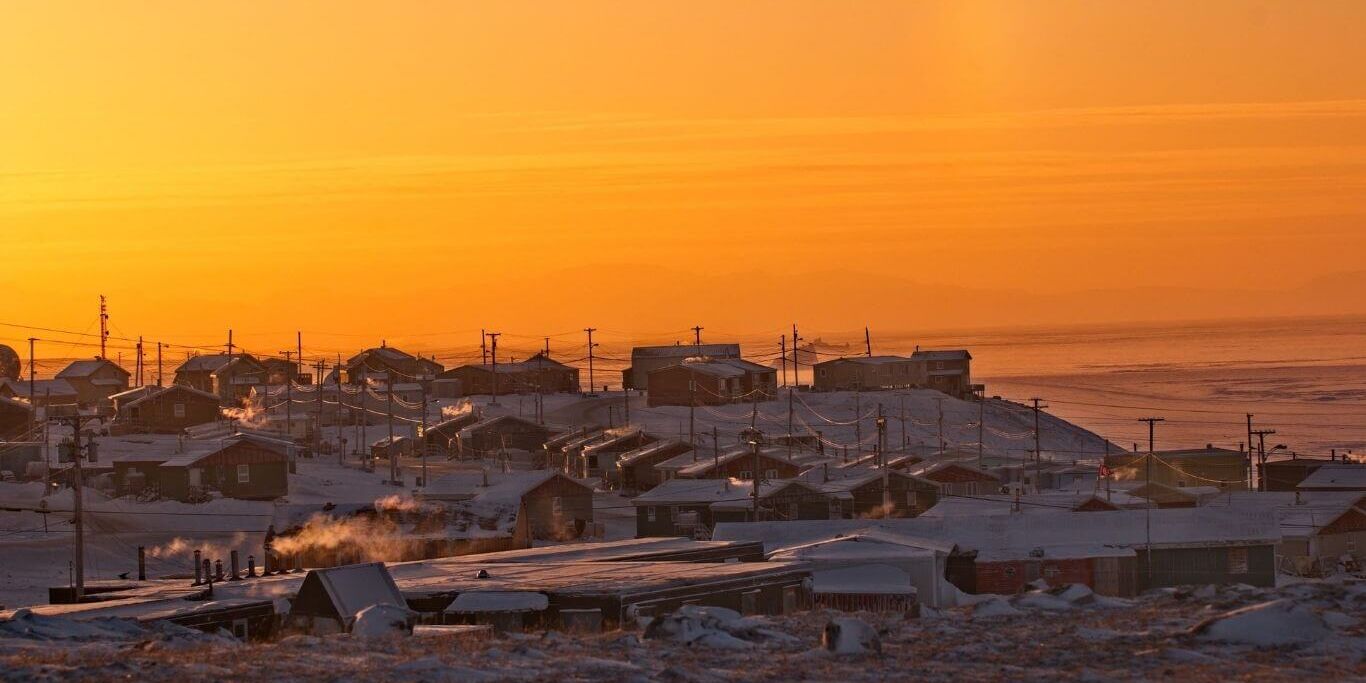by ICC Staff

Indigenous communities across Canada are set to be affected disproportionately by climate change in the present and coming decades. Because many Indigenous peoples in Canada maintain strong relationships with land, wildlife, and seasons among other things shifts in climate strike at the heart of the Indigenous economy while undermining self-determination.
The socio-economic disparities, moreover, that exist between Indigenous and non-Indigenous peoples further exacerbate the problems posed by climate change. As such, to properly address the impacts of climate change toward Indigenous communities it is not enough to mitigate the deleterious effects of the climate itself.
Geographic Vulnerability and Traditional Food Systems Under Threat
Indigenous communities are disproportionately affected for several interlocking reasons. Many live in geographic zones experiencing rapid change such as, for instance, northern, coastal, or remote areas where warming, permafrost thaw, ice melt, coastal erosion, and changing hydrology occur more acutely.
In addition, traditional food systems such as hunting, fishing, trapping, gathering are under stress. In 2017, 65 % of Inuit, 33 % of off-reserve First Nations, and 35 % of Métis reported engaging in harvesting (hunting, fishing, trapping) as part of their livelihood or subsistence according to Statistics Canada.
Yet climate-driven shifts in species ranges, migration timing, health of fish and game populations, and altered ice and snow conditions make harvesting more uncertain and dangerous.
For example, thinning sea ice or unpredictable freeze-thaw cycles jeopardize safe travel for Inuit harvesters. In many remote or northern communities, ice roads are seasonal supply routes for fuel, building materials, and food. A warming climate shortens the window for safe use of these roads, forcing reliance on costly air transport.
Cascading Impacts: Health, Infrastructure, and Displacement
Furthermore, health outcomes are already being strained. Climate change exacerbates respiratory, cardiovascular, infectious, water- and food-borne diseases; increases injury risk during extreme events and complicates access to health services, especially in remote settings.
Infrastructure such as roads, housing, water systems, among other things, may suffer damage from thawing permafrost, flooding, and erosion. In isolated communities, a single extreme event can isolate or cut off essential services.
Disaster displacement is rising, 2023 saw over 190,000 internal displacements in Canada due to disasters (many tied to wildfires or extreme events), putting additional stress on Indigenous communities already struggling with limited emergency infrastructure.
Additionally, mental health and cultural impacts are profound. Loss of land, less ability to practice traditional harvesting, disruption in intergenerational knowledge transfer, and climate-related trauma amplify stress, anxiety, grief, and feelings of spiritual loss.
Present-Day Realities and Mounting Urgency
Just this year, the wildfires throughout northern Manitoba and Saskatchewan forced thousands of Indigenous residents to evacuate by helicopter and bus, emphasizing how remote communities are particularly vulnerable to rapid fire events.
Meanwhile, in the winter more than 50 Indigenous communities depend on approximately 6,000 km of winter ice roads. As winters warm and freeze thresholds are not reliably met, communities are seeing supply chains break down, costs escalate, and urgency grow for permanent infrastructure solutions.
In summary, Indigenous communities rely heavily upon the land in a way that no other community does. Climate change is set to disrupt this lifestyle, and the socioeconomic conditions that exist will only further amplify the challenge that climate change poses to Indigenous communities.
Join Our Newsletter
As Manitoba's voice for Indigenous business and your partner in economic reconciliation, we connect you to opportunities that drive change. Subscribe to receive updates on Indigenous business developments, partnership opportunities, and upcoming events delivered straight to your inbox.



